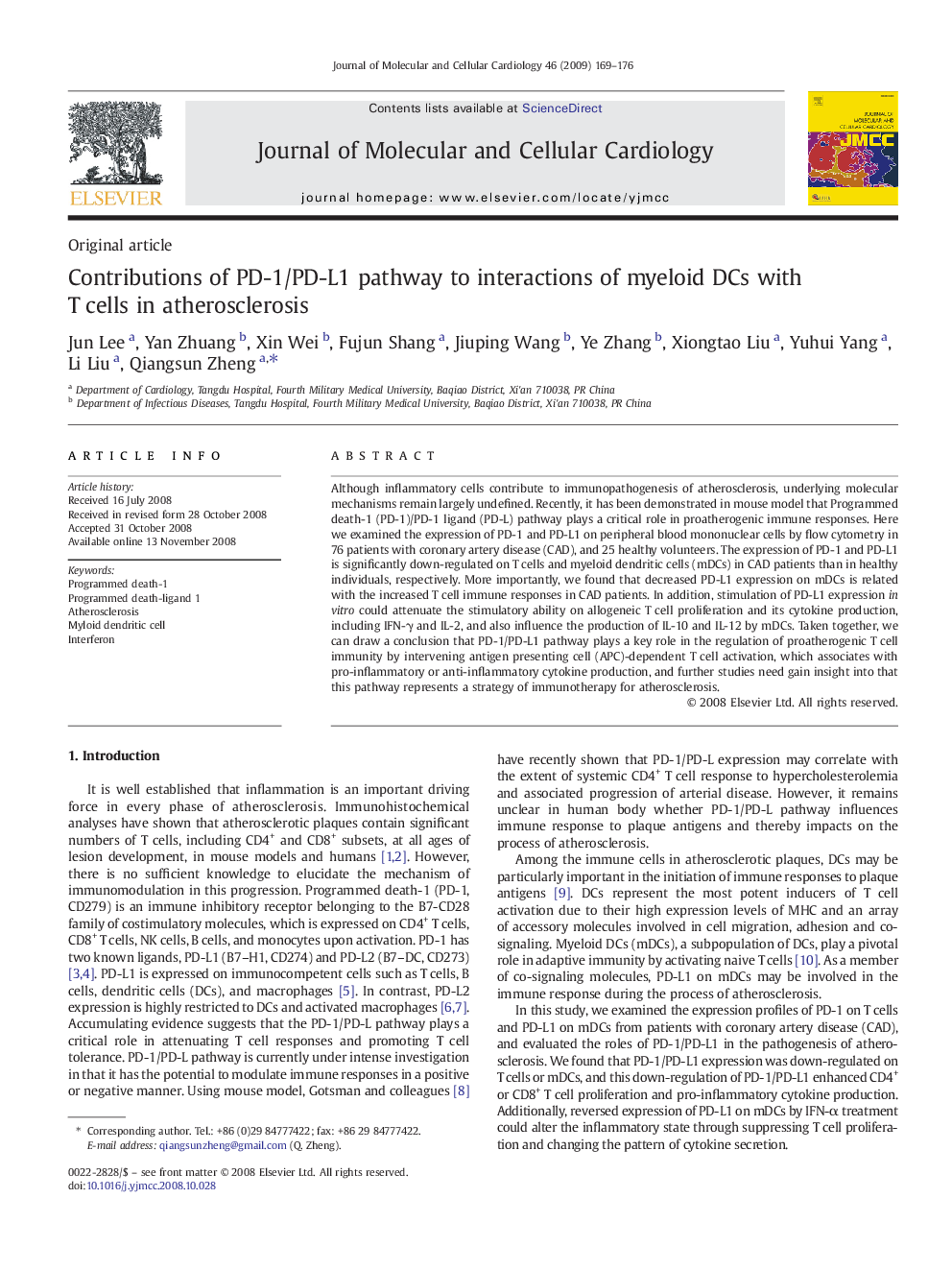| Article ID | Journal | Published Year | Pages | File Type |
|---|---|---|---|---|
| 2191539 | Journal of Molecular and Cellular Cardiology | 2009 | 8 Pages |
Although inflammatory cells contribute to immunopathogenesis of atherosclerosis, underlying molecular mechanisms remain largely undefined. Recently, it has been demonstrated in mouse model that Programmed death-1 (PD-1)/PD-1 ligand (PD-L) pathway plays a critical role in proatherogenic immune responses. Here we examined the expression of PD-1 and PD-L1 on peripheral blood mononuclear cells by flow cytometry in 76 patients with coronary artery disease (CAD), and 25 healthy volunteers. The expression of PD-1 and PD-L1 is significantly down-regulated on T cells and myeloid dendritic cells (mDCs) in CAD patients than in healthy individuals, respectively. More importantly, we found that decreased PD-L1 expression on mDCs is related with the increased T cell immune responses in CAD patients. In addition, stimulation of PD-L1 expression in vitro could attenuate the stimulatory ability on allogeneic T cell proliferation and its cytokine production, including IFN-γ and IL-2, and also influence the production of IL-10 and IL-12 by mDCs. Taken together, we can draw a conclusion that PD-1/PD-L1 pathway plays a key role in the regulation of proatherogenic T cell immunity by intervening antigen presenting cell (APC)-dependent T cell activation, which associates with pro-inflammatory or anti-inflammatory cytokine production, and further studies need gain insight into that this pathway represents a strategy of immunotherapy for atherosclerosis.
